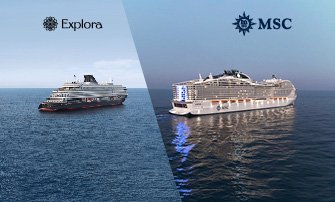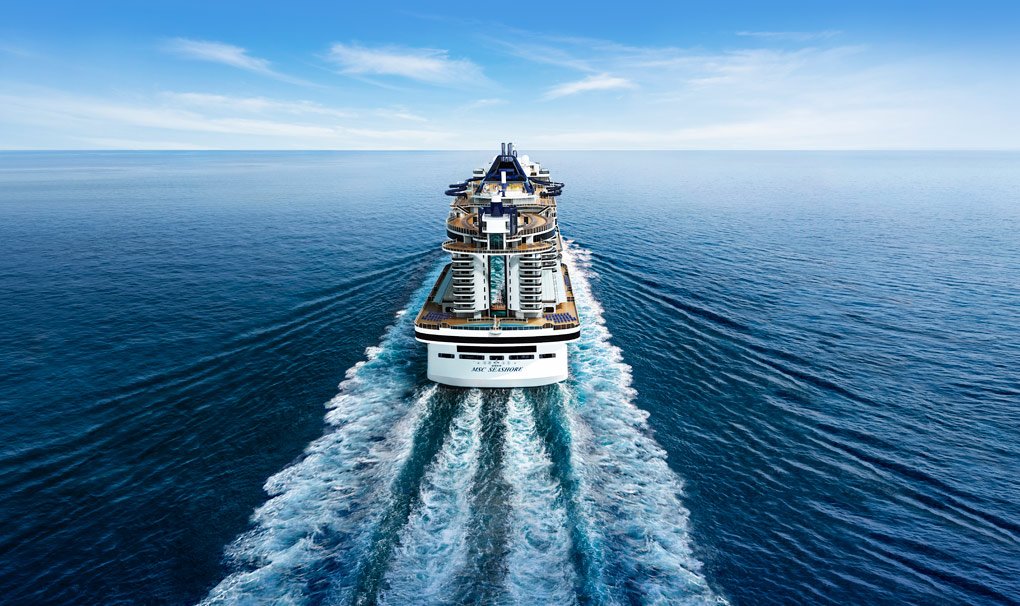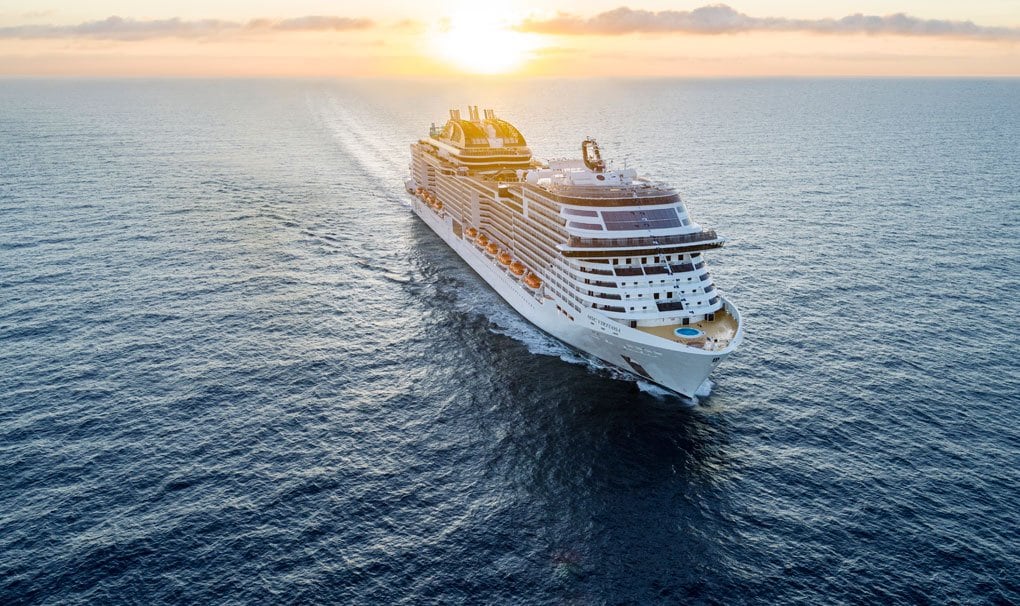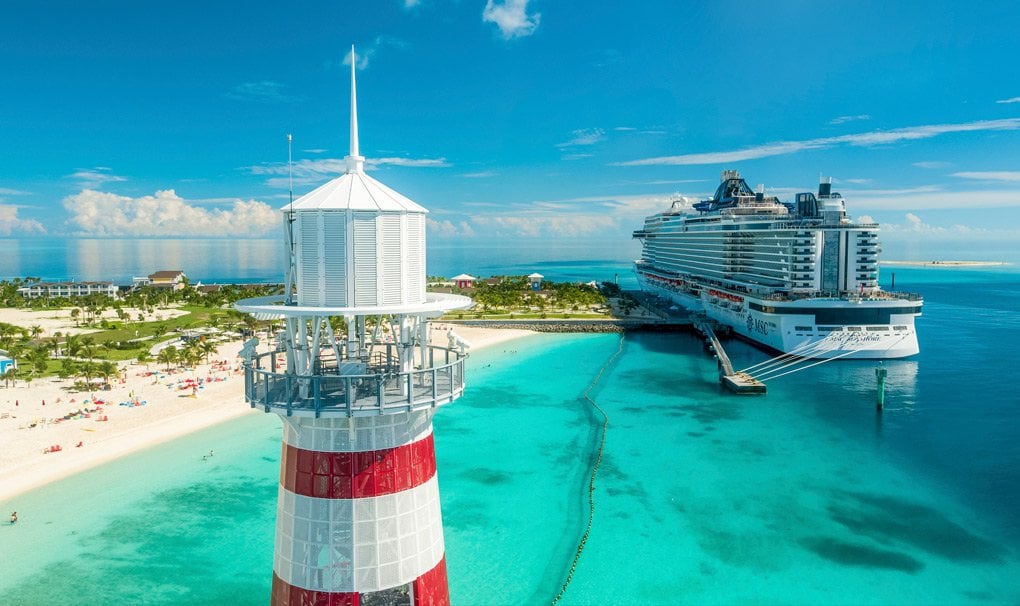Planet
We are fully committed to playing our part in addressing climate change and promoting ocean biodiversity. We are determined to accelerate our transition toward net zero emissions by 2050 from our marine operations. We work closely with leading technology companies, shipyards, and fuel providers to push the boundaries of what is possible. In 2022, we launched our first LNG powered ship – a significant milestone on this important journey.
Pathway to decarbonisation
We are on track to meet the IMO (International Maritime Organization) carbon intensity goal of a 40% reduction from 2008 levels well ahead of the 2030 milestone set by the IMO. In 2022 we already achieved 33.5% reduction. Since decarbonizing marine operations is one of our main priorities our ambitious goal is to reach net zero greenhouse gas emissions for our fleet by 2050.
Pathway to decarbonisation
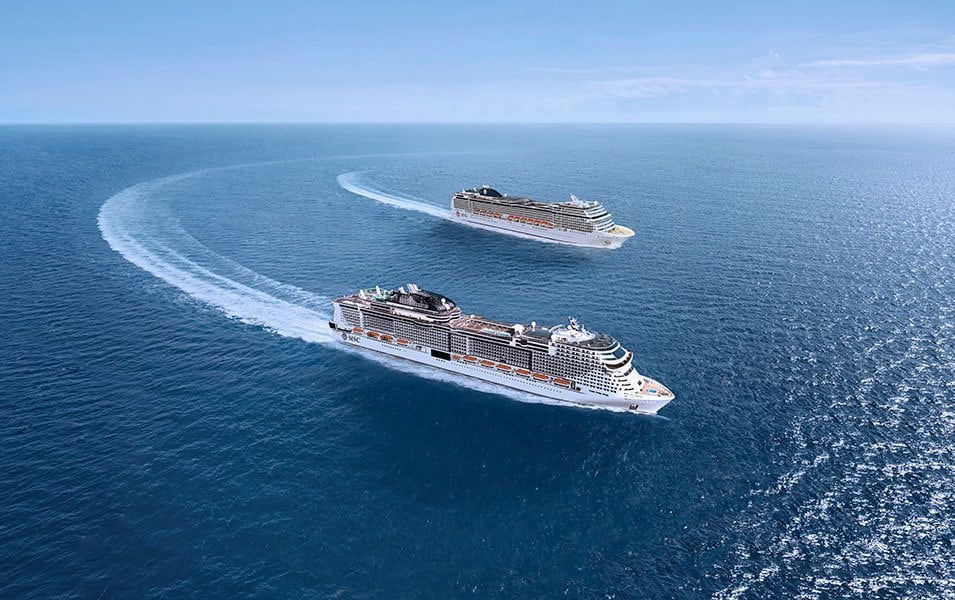
Minimising local pollutants
We are a guest in all the ports we visit and strive to minimise our impact on local communities and their environment, particularly in the area of air emissions.
Reducing emissions to air:
Connecting to shore power enables us to turn off our ships’ engines and connect to the local electrical grid to run our onboard systems. With electricity travelling to the ship through a specially designed transformer at the dock, this process prevents emissions produced from our onboard diesel generators, improving local air quality as well as reducing noise and vibration levels – benefitting both the environment and the surrounding communities.
Creating freshwater: Every day, the freshwater production plants on our ships use reverse osmosis and evaporation to transform millions of litres of seawater into drinking water. During 2022, we produced over 88% of the 4.8m m3 of freshwater we used on board our ships. As well as drinking it, we use it for cooking, cleaning, and laundry – and even to brew beer on MSC World Europa.
Treating our wastewater: Once we have used the freshwater, we ensure that it is treated before discharging it into the ocean. All vessels within our fleet have wastewater treatment systems cleaning wastewater to ensure our full complaince with wastewater discharge rules in any part of the world’s oceans that we operate in. Since 2017, all new MSC Cruises ships have been equipped with Advanced Wastewater Treatment Systems (AWTS).
Treating ballast water: ballast water helps keeping the weight and centre of gravity balanced. By optimising the trim, we can have a significant impact on a vessel’s energy demand. We have adopted a strict treatment regime to remove any threat that bacteria, microbes, small invertebrates, larvae, and other microorganisms in the ballast water may have as they are transported from one location to another.
Minimising local pollutants
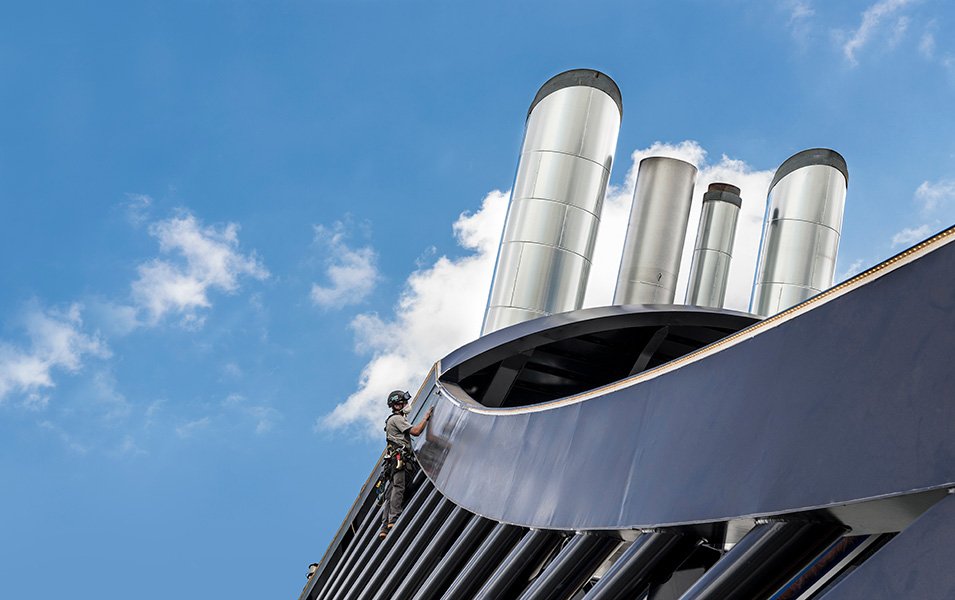
Protecting the biodiversity of our oceans
Maintaining the health of our oceans is key to protecting the planet. As well as being a significant carbon sink, our oceans are home to a wealth of wildlife. MSC Cruises continues to play a proactive role in protecting the marine and coastal habitats.
Marine conservation on Ocean Cay: A fifth of the marine and coastal habitats surrounding the Bahamas have been designated as Marine Protected Areas – in other words, areas that are under some form of management, like Ocean Cay. Following a rigorous selection process, Ocean Cay has been declared a ‘Hope Spot’ by Mission Blue, a coalition committed to the protection of the ocean, indicating that it has been scientifically identified as critical to the health of the ocean. We hope that Ocean Cay will one day be designated as a Marine Protected Area (MPA).
In 2023, MSC Cruises partnered with marine conservation charity ORCA to deliver a comprehensive ship strike mitigation programme for deck officers to reduce the likelihood of collisions with whales, dolphins, and porpoises in oceans around the world. By the end of 2023 226 MSC Cruises’ officers had been trained, and any new joiners goes through the course during their familiarization period.An innovative partnership was announced in 2023 with NatureMetrics, the pioneering nature intelligence and environmental DNA specialists. Three vessels collected eDNA samples from seawater while operating in international waters in the North Atlantic These were sent to NatureMetrics for analysis, who identified more than 3,274 distinct species, including 17 listed on the International Union for Conservation of Nature Red List of Threatened Species. These included the critically endangered European eel, the Atlantic halibut and many vulnerable species including fin and sperm whales. All data collected is made available through the eBioAtlas programme to support species inventories, mitigate biodiversity loss, and accelerate progress towards a nature-positive future.
Protecting the biodiversity of our oceans
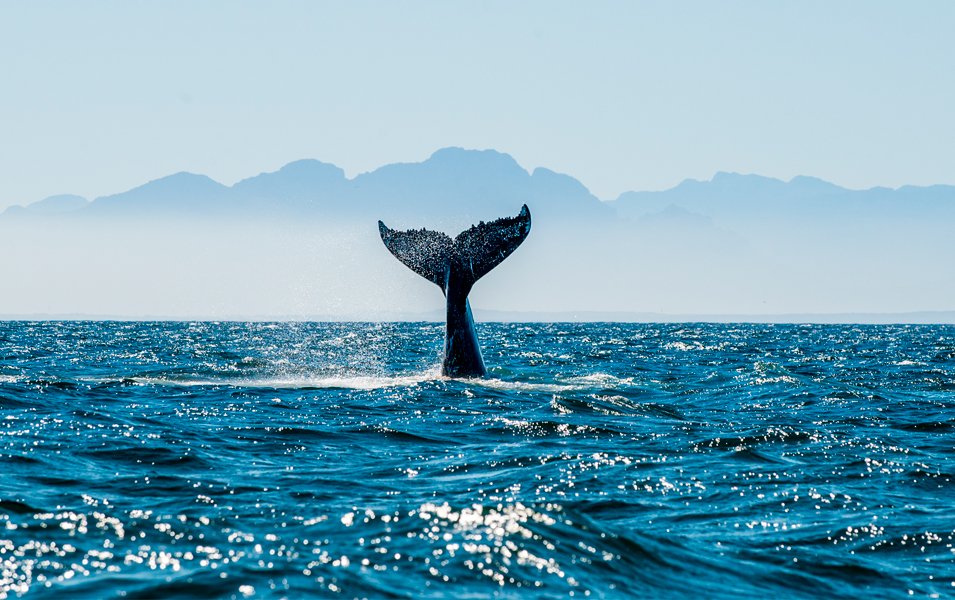
SUSTAINABILITY REPORTS
Our sustainability strategy is organized around four key pillars: Planet, People, Place and Procurement
Browse our Sustainability reports and find out what are our actions and goals to achieve sustainable cruising.


